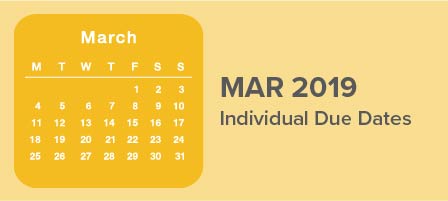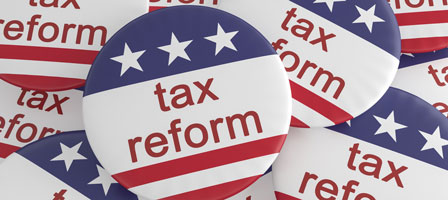The Coronavirus Stimulus Package (CARES Act): What It Means for You
- Learn about the recovery rebate and if you qualify.
- Find out more about penalty-free retirement withdrawals.
- Find out how the waiver of the 2020 RMD requirement could affect you.
- Can the temporary removal of charitable contribution limits help you?
- Learn how the CARES Act affects employer student loan payments.
- Discover the details of the employer delayed payroll tax deposits.
- Find out how the employer credit for retaining employees can help you and your employees weather this storm.
- Learn how the temporary reinstatement of NOL carrybacks may help you.
- Can changes to the limitation on losses rule make a difference for your business?
- Find out how the prior year AMT credit for corporations may be useful to you.
- The limitation on business interest changes could save you money on your 2020 taxes.
- Get more information on loan guarantees and subsidies.
The Coronavirus Aid, Relief, and Economic Security Act (CARES Act) includes many tax and financial breaks for both individuals and businesses. Fiducial has broken down many of the essential elements of the coronavirus stimulus package and how it can assist you and your business during this troubling time. We are ready to answer any questions you may have, but here is a place to start. Visit Fiducial’s Coronavirus Update Center for information on the CARES Act Paycheck Protection Program (PPP) and other assistance being offered at this time.
Coronavirus Stimulus Package–Recovery Rebate
The most talked about provision of the coronavirus stimulus package is the “recovery rebates” for individuals. These rebates are actually credits allowed on taxpayers’ 2020 tax returns. They will be paid out in advance by the Treasury.
Each eligible individual will receive $1,200 ($2,400 for married couples filing jointly) plus an additional $500 for each qualifying child. These rebates are intended for low- to middle-income individuals, so they are phased out for higher income folks. For unmarried individuals, the credit begins to phase out at an AGI of $75,000 and is fully eliminated at $98,990. For those filing as head of household, the phase-out range is $112,500 to $136,490. For married couples filing jointly, it is $150,000 to $197,990.
Recovery Rebates and Tax Returns
The Treasury will determine who will receive a check and the amount they are entitled to. This amount is based on the individual’s 2019 tax return. Where no 2019 return has been filed at the time of the rebate payment, the Treasury will use the 2018 tax return. If neither a 2018 or 2019 return has been filed, the Treasury will provide a payment to individuals that received 2019 Social Security or Railroad Retirement benefits.
Where an advance rebate is more or less than allowed because an individual’s filing status or family size is different in 2020 or the credit is subject to phase-out based on 2020 income, the adjustment is made on the 2020 tax return. So, good news for some: individuals may be entitled to an additional credit through the coronavirus stimulus package. Advance rebates that are more than is allowable for 2020 must be reduced (but not below zero) by the advance rebates made or allowed to the taxpayer during 2020. This means that individuals who otherwise wouldn’t have a 2020 return filing requirement based on their income will likely have to file to reconcile their advance rebate with their actual credit.
The rebates will not be paid to individuals who are claimed as a dependent of another on a prior year return.
Additional Key Provisions of the CARES Act
The CARES Act is over 500 pages covering tax provisions, economic stimulus, business loans, health care and more. The following is an overview of the key issues relating to individuals and small businesses. Likely, you will have questions about how all of this will affect you and your business. Fiducial is here to get into the details with you and find the best way forward.
Individuals:
- Penalty Free Retirement Withdrawals – Penalty-free withdrawals from qualified retirement plans (including 401(k)s, TSAs, SEPs and traditional IRAs) are allowed. The withdrawals are limited to $100,000 and the income is taxable over a three-year period. There is an option to also recontribute the withdrawal over a three-year period.
- RMD Waiver – There is a one-year waiver for the 2020 required minimum distribution (RMD) from qualified plans and traditional IRAs for taxpayers that turned 70.5 in a year before 2020 and those that turn 72 in 2020. This prevents them from having to take a distribution when the stock market is in a decline.
- Charitable Contributions – A suspension of charitable contribution limits applies for 2020. Generally, for cash gifts, tax deductible charitable contributions are limited to 60% of adjusted gross income (AGI). The suspension of the limitation will allow taxpayers to make larger charitable contributions during this trying time. Also included is an above-the-line charitable deduction limited to $300 of cash donations for those that don’t itemize their deductions.
- Student Loan Payments – Due to the coronavirus stimulus package, employees can exclude from income payments (up to $5,250) made before January 1, 2021 by their employers towards their student loans.

Businesses:
- Payroll Deposits Delayed – In order to provide businesses with more financial resources to weather this epidemic, employers can delay payroll tax deposits for 2020. Fifty percent will not be due until December 31, 2021, and the balance due by December 31, 2022.
- Employee Retention Credit – In order to help businesses retain employees and keep them employed during this crisis, Congress has provided a refundable employer retention credit equal to 50% of qualified wages. This credit can be used to offset quarterly employment taxes. The qualified wages under this provision are limited to $10,000 per employee in 2020.
- NOL Carryback Reinstated – Under the 2018 tax reform legislation (TCJA), a business net operating loss (NOL) was no longer allowed to be carried back to a prior year. It had to be carried forward to the next tax year. Also, the carryforward loss deduction was limited to 80% of the carryforward year’s taxable income. Under the CARES Act, carryback of losses incurred in 2018 through 2020 has been reinstated. The 80% of taxable income limitation has also been repealed. This is designed so businesses with financial problems can file for tax refunds from the carryback years when they were profitable and had paid income taxes.
- Limitation on Losses – The coronavirus stimulus package retroactively turns off the excess active business and farming loss limitation rules implemented as part of tax reform to apply after December 31, 2020 instead of after December 31, 2017.
- Prior Year AMT Credit for Corporations – Allows corporations to claim 100% of AMT credits in 2019 as fully-refundable. The legislation also provides an election to accelerate claims to 2018, with eligibility for accelerated refunds.
- Limitation on Business Interest – Generally allows businesses to elect to increase the interest limitation from 30% of adjusted taxable income to 50% for 2019 and 2020. Businesses are also allowed to elect to use 2019 adjusted taxable income in calculating their 2020 limitation.
- Loan Guarantees and Subsidies – Includes over $300 billion for Small Business Administration (SBA) loan guarantees and subsidies and additional funding for SBA resources.
Of course, there are additional details that we will be providing in the days ahead. Need help navigating the coronavirus stimulus bill or any other financial aspect of this trying time? Call Fiducial at 1-866-FIDUCIAL or make an appointment at one of our office locations. Ready to book an appointment now? Click here. Know someone who might need our services? We love referrals! For more small business COVID-19 resources, visit Fiducial’s Coronavirus Update Center to find information on SBA loans, tax updates, the Paycheck Protection Program, paid sick and family leave, and more.









